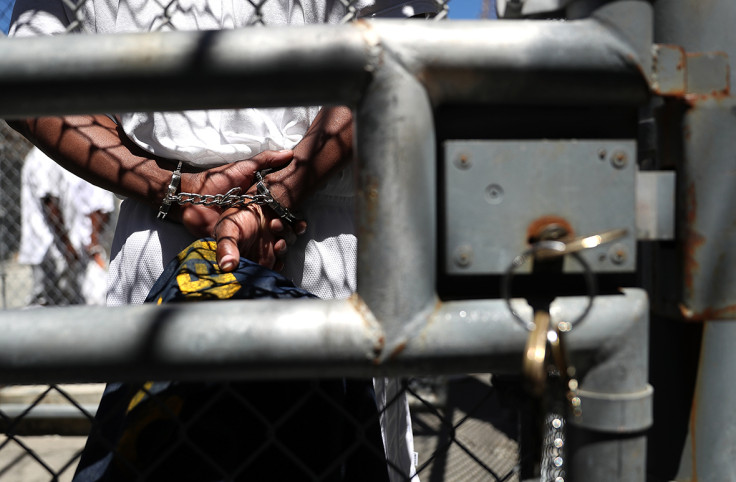We stopped burning witches – isn't it time we stopped putting people to death?
There are still 2,905 people on death row in the US and 8,200 in Pakistan.

Given my three-decade obsession with fighting the death penalty in the US and around the world, people often quiz me on whether I think I will see the last execution chamber abolished in my lifetime. To which my reply tends to be that it depends on my consumption of gin and tonic – it could go either way, and I must hope that a bit of gentle pickling will increase my longevity.
In the execution premier league, there are 25 countries that carried out executions last year. Compare this to the 171 countries that did not play the game, and the death of the death penalty would seem to be on the near horizon.
In this regard, two matters are clear: first, that the history books will not be kind to capital punishment. We don't celebrate burning witches at the stake as the harbinger of the Enlightenment, and we won't look back on the gas chamber, the electric chair and the lethal injection gurney as the apogee of 21st century civilisation.
Second, however, no matter what the timeline, there are thousands of people on death row around the world today for whom the discussion is academic. They won't live to see abolition because they will already have been methodically trussed up for execution.
As of today, there are 2,905 people on death row USA and some 8,200 awaiting the hangman's noose in Pakistan. The numbers in Iran and China are equally vast, but shaded in secrecy – with both countries being much more efficient killers.
If the death penalty is in its death throes then, like a wild animal, the executioner is thrashing wildly about himself. In 2015, more than 1,694 people were executed, up by half from the year before. Some said Saudi's new king would start discarding the raiments of conservatism: instead, executions accelerated, and the new king tried to include a number of juveniles like Ali al-Nimr under the slice of the scimitar, and the nails of crucifixion. In Ali's case, his crime was being a Shia youth who allegedly joined a protest for equal rights with the Sunni majority. On a day when 44 other people died, Ali survived only through massive international pressure – partially, initially, engendered through this publication.
Capital punishment is when those without the capital get the punishment
Pakistan lifted a six-year moratorium and executed 400 people in short order. Such was the dedication of the new government that Abdul Basit was wheeled towards the gibbet on three occasions, each delayed because the government had not devised a plan for how they might hang a paraplegic who could not climb the stairs to the noose.
Most would accept that mistakes in the death penalty run through every level – by definition, since we are mortal rather than omniscient. However, few appreciate just how flawed the system is. In some ways, everyone is in the wrong job when it comes to judging those proposed for execution. The innocent defendant is his own worst enemy – wanting to rush to trial, without spending the time (or, if he has it, the money) to prepare. To be sure, capital punishment is when those without the capital get the punishment – and the defence lawyer is likely to be inept, funded at a derisory level by the state, while the best and the brightest lawyers rush off to defend banks and corporations.
READ MORE: Sheikh Nimr al-Nimr: Saudi Arabia holding Shia leader's body eight months after execution
It is in the role of the police officer and the prosecutor where we would hope for maximum caution and open-mindedness, if we are to avoid a miscarriage of justice. Yet the opposite is true: those who are willing to judge their fellow man tend to be the most dogmatic among us, which is hardly surprising as who among us is willing to go to work every day wondering how many innocent people we might condemn today?
And those high-minded jurists who seeks always to right an error are uncommon beasts as well, since judges tire of the endless last-minute appeals in capital cases, and seek to shut them down with arcane procedural rules.
In the end, though, it all comes down to the individual human beings. In 1987, I raised what I thought was a compelling reason why Edward Earl Johnson should not be executed. At the time, the learned judges of the federal Fifth Circuit Court of Appeals told me I was wrong. Five years later, the issue reached the Supreme Court, and the government argued strenuously the precedent from Edward's case meant the prisoner should lose. "The short answer to the state's argument," Justice Kennedy wrote tersely, "is that the Fifth Circuit made a serious mistake in ... Johnson."
The problem, of course, was that the same evening that the Fifth Circuit made that "serious mistake", Mississippi had been permitted to execute Edward – as midnight approached on May 21, 1987, I walked into the gas chamber with him. We are all fallible, and my own failure was writ large in the BBC/HBO documentary about the case, Fourteen Days in May. Edward was innocent, and Justice Kennedy's post-mortem recognition of his right to life failed to result in his reincarnation.
He was two years younger than me, and today should be enjoying his 55<sup>th year among friends and family in Walnut Grove, Mississippi. Instead, on May 21, 2017, I shall glumly mark the 30<sup>th anniversary of his death.
There are many other Edward Johnson's waiting in their prison cells. How many of them must die before we call time on the foul practice of sacrificing a fellow being on the false altar of deterrence?
Clive Stafford Smith is the Director of the legal action charity Reprieve, at www.reprieve.org.uk
© Copyright IBTimes 2025. All rights reserved.






















